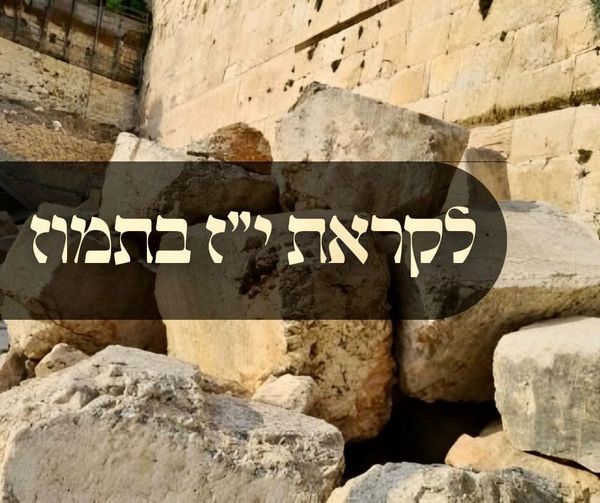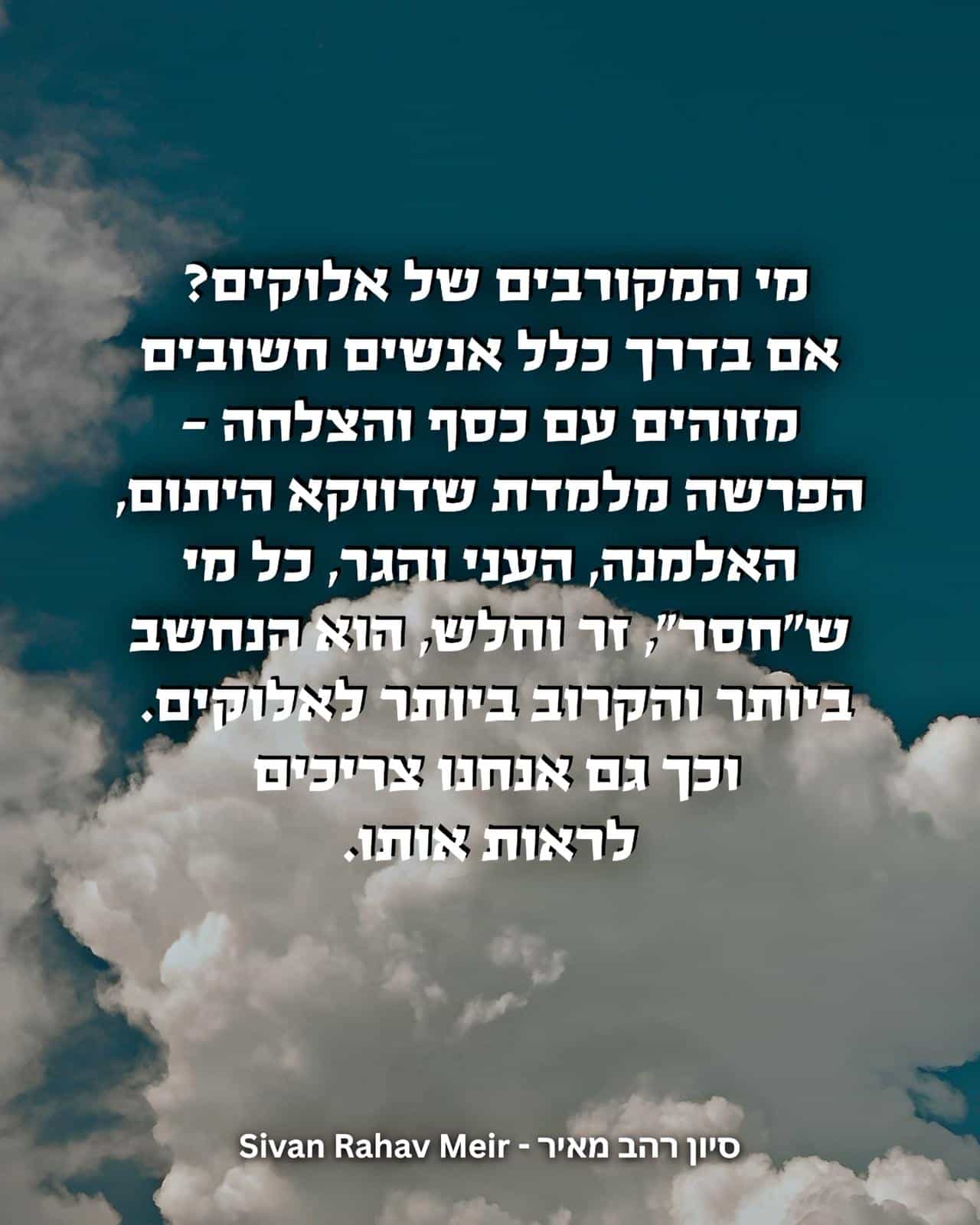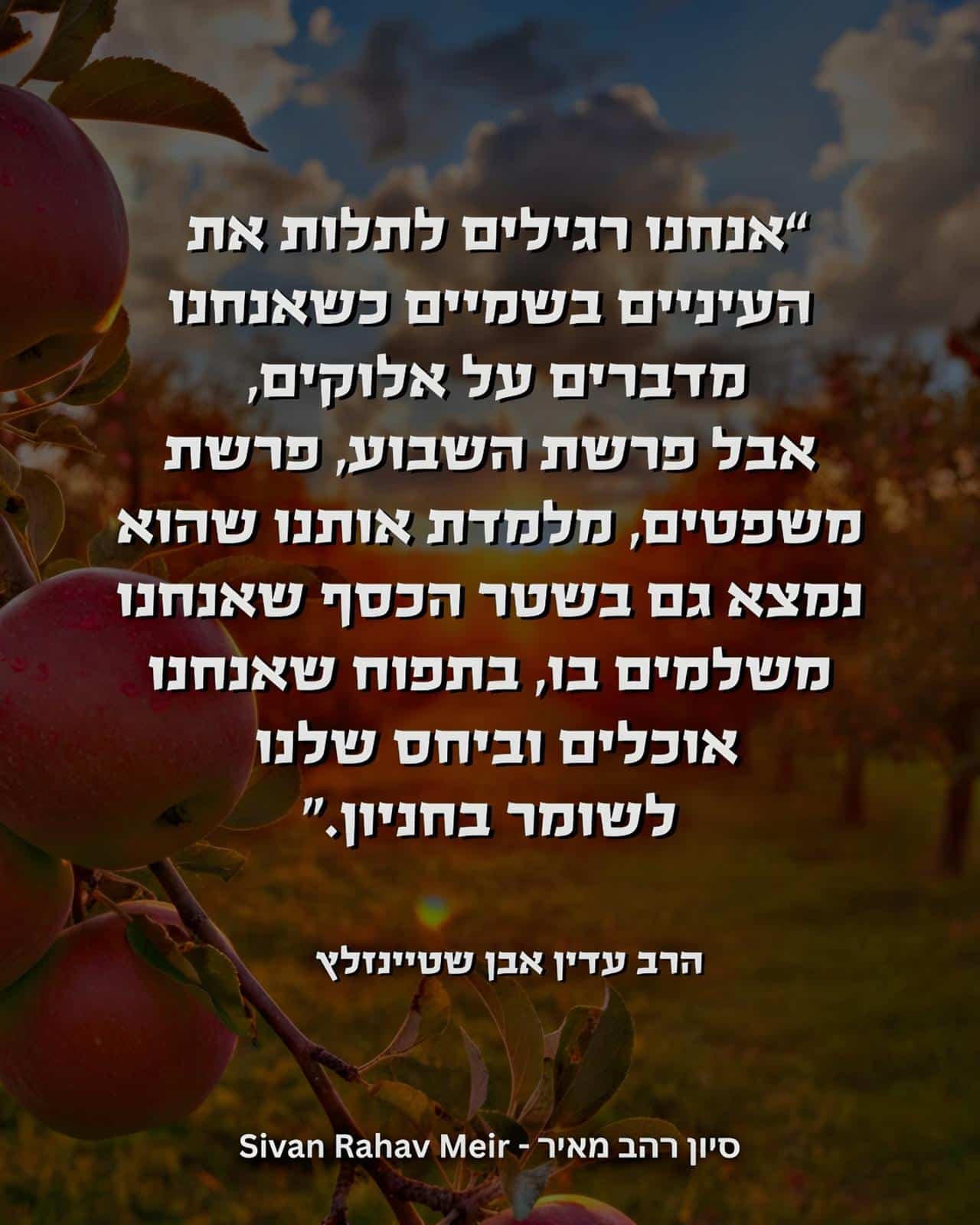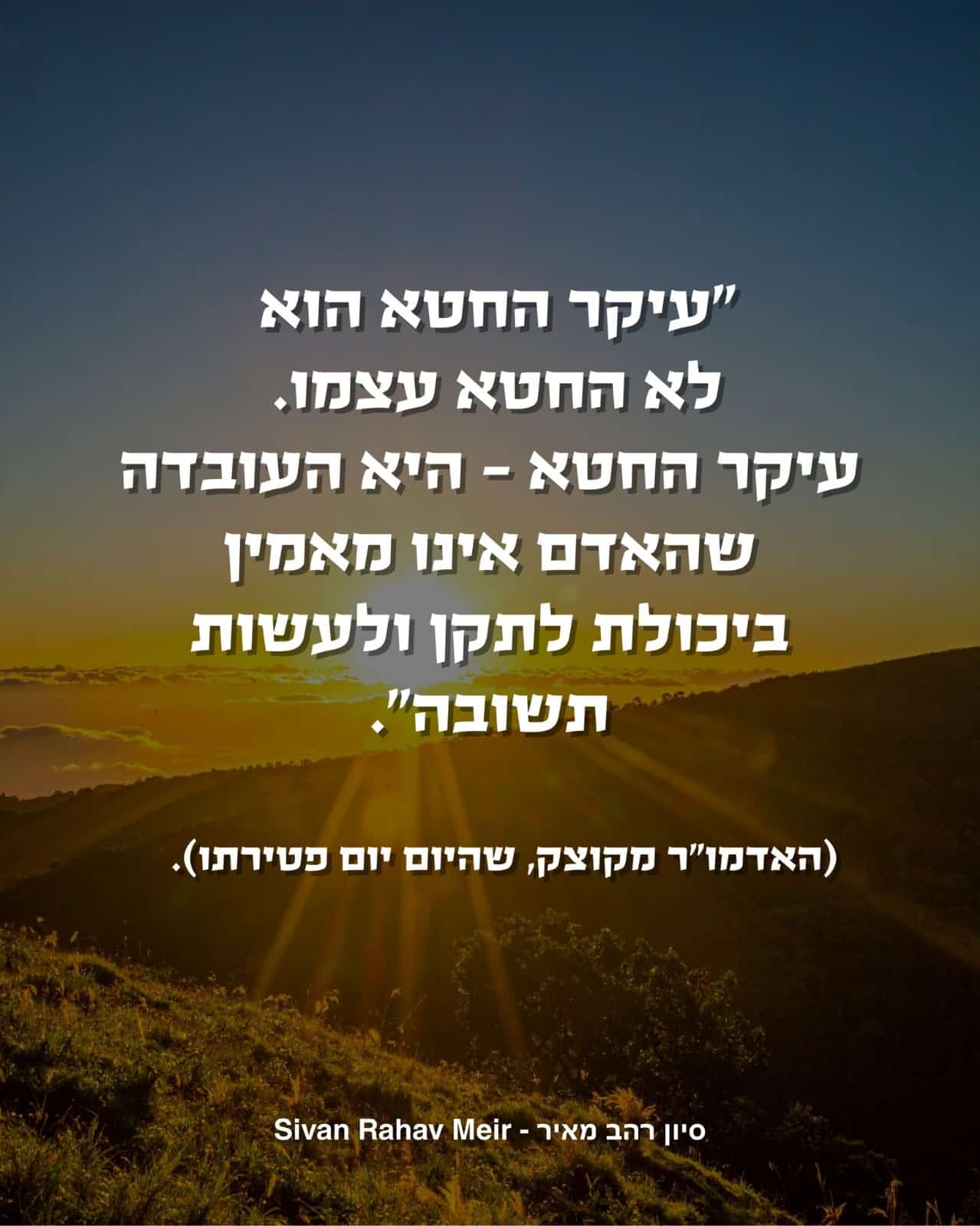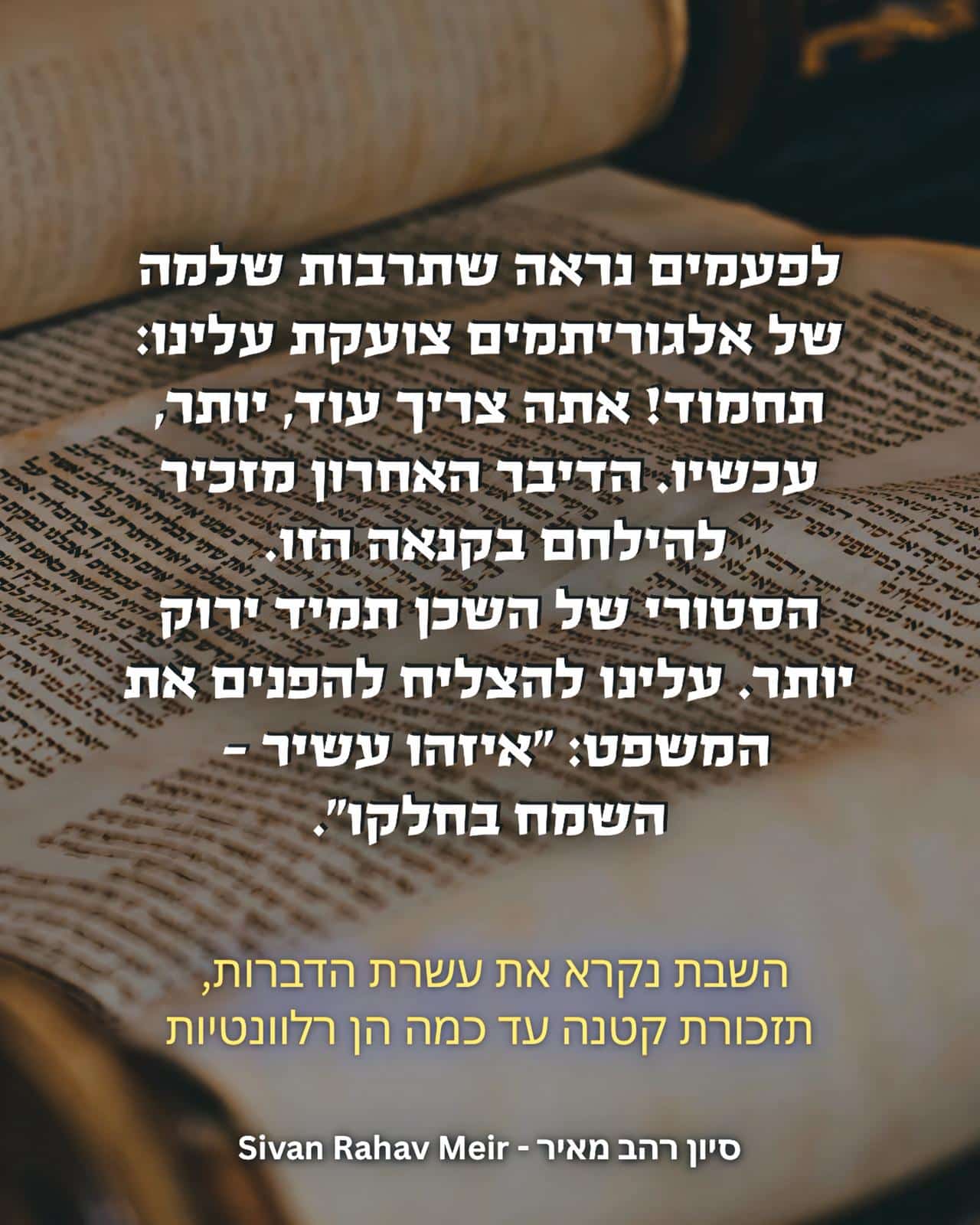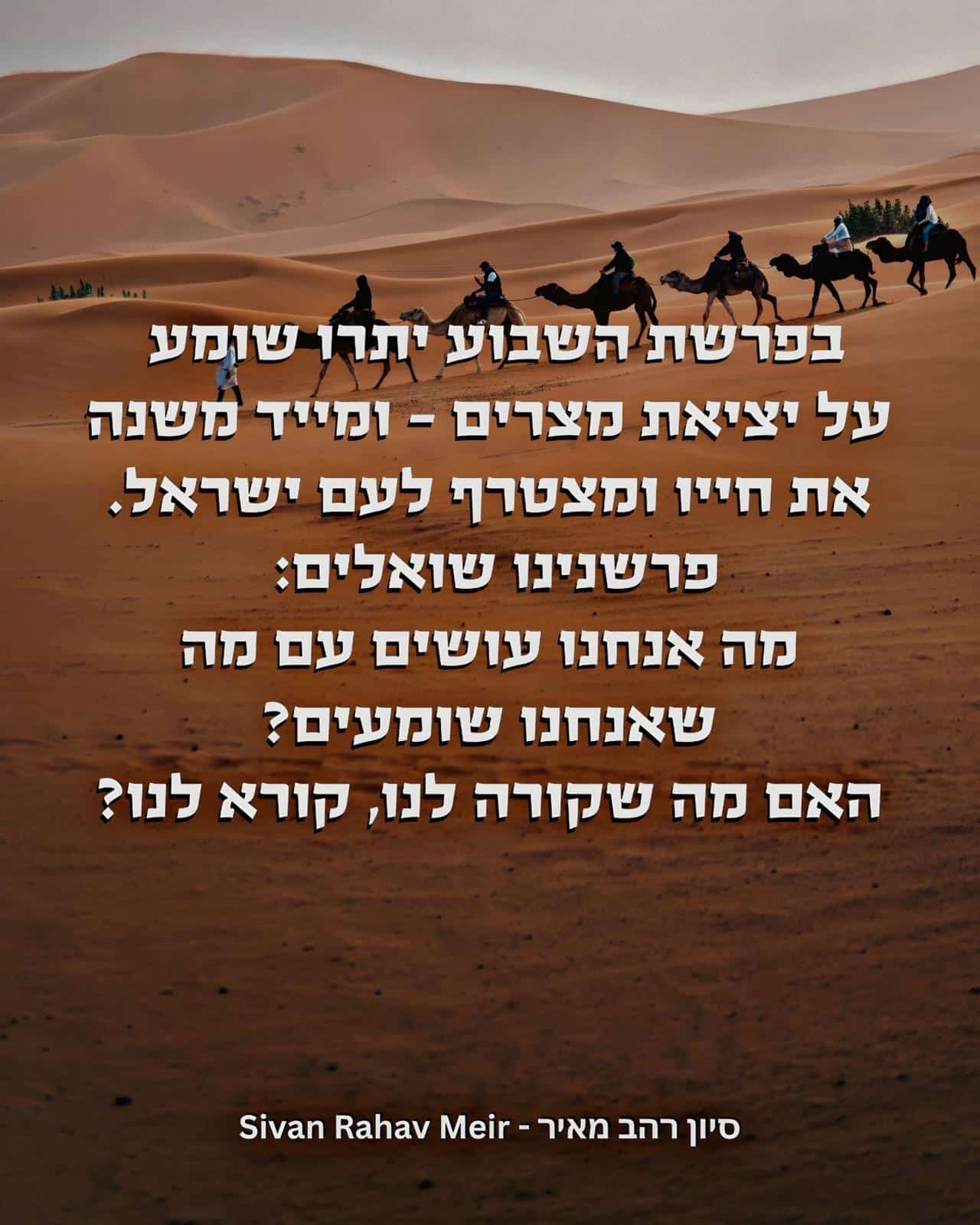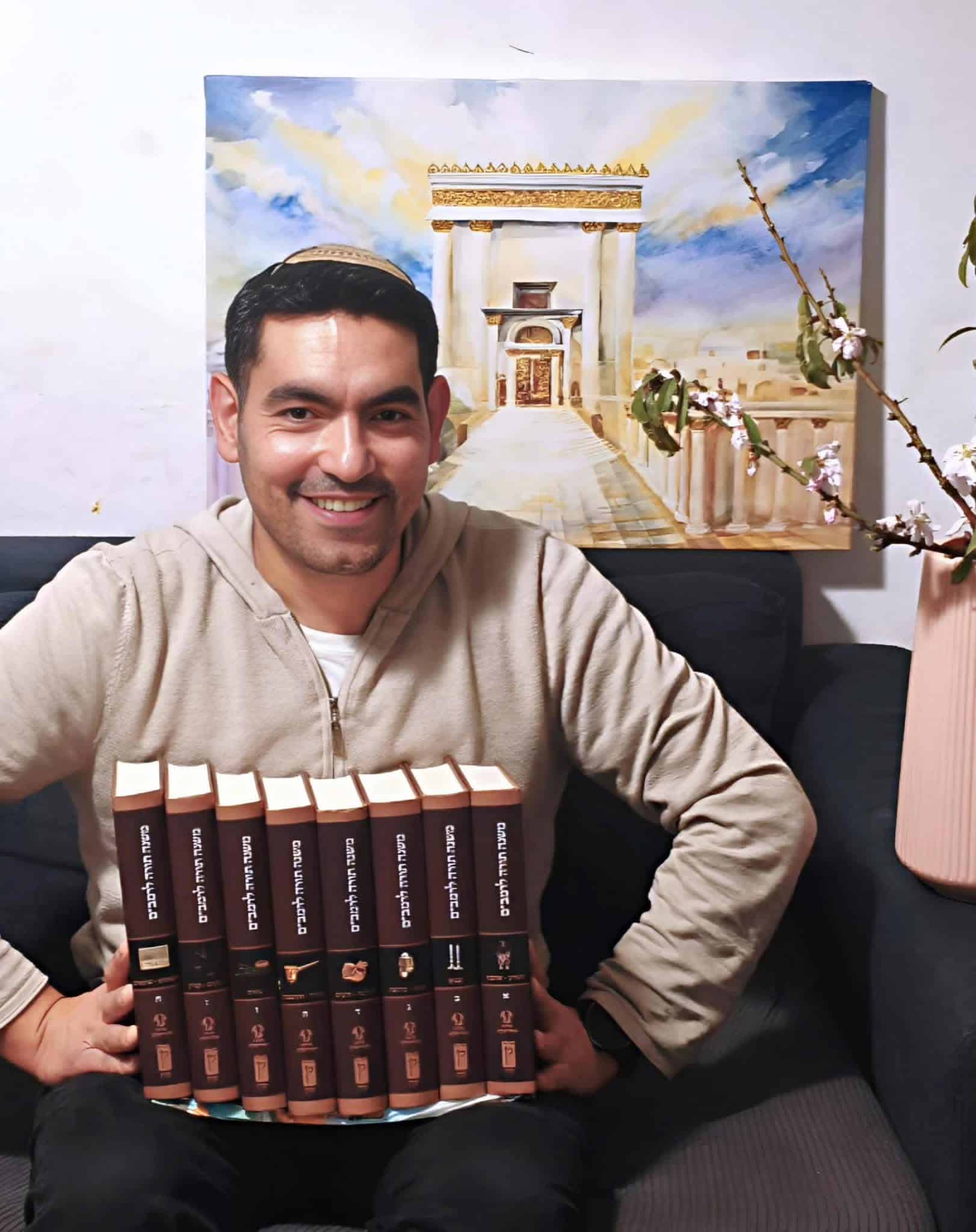* Translation by Yehoshua Siskin
A.
In preparation of the fast of the 17th of Tammuz
What is different about the fast of the 17th of Tammuz this year? Tomorrow (Tuesday) is the fast of the 17th Tammuz. It starts from dawn until evening. This is the day when the walls of the city of Jerusalem were breached, before the destruction of the temple. But this year there is a special meaning to these ancient words: "The walls have been breached." Imagine the walls that protect the city falling, and the Roman enemy simply coming in, conquering and destroying. Sound familiar? This is what happened to us this year, when the “walls” in the south were breached.
The fast of the 17th of Tammuz symbolizes the beginning of the "three weeks" (a period also known as "between the straits"). We observe traditions of mourning during this time from the 17th of Tammuz and until the 9th of Av which is the day of the Temple’s destruction and the beginning of our exile. This year, unfortunately there is so much more mourning and a feeling of sadness in the air.
So is the goal just to grieve? Our sages ask us to check carefully whether the sadness leads us only to despair, or also to repair. Do we feel the fast only in our stomach, or also in our heart?
These are great days in which there is an opportunity for deep repair: days that call us to ask the most difficult questions, about ourselves and our destiny. What is the nation of Israel in general, what is our role?
The prophet Zechariah said that these days will turn into other days in the future, they will turn into days of ”joy, happiness and good times". It depends on us, and with God's help this year. May we hear good news.
B.
1. Today is the fast of the 17th of Tammuz. The fast begins at dawn and ends when the stars come out (at around 20:10 in Israel).
2. On the 17th of Tammuz, nearly 2,000 years ago, the walls of Jerusalem were breached by Titus and the Roman army. The siege lasted three weeks and, in the end, on the 9th of Av, the Holy Temple was destroyed.
3. Today the period known as "between the straits" or "the three weeks" begins. During this time, mourning customs are observed, culminating on the 9th of Av.
4. Our Sages mention four other tragic events that occurred on this date: Moses descended from Mount Sinai, saw the golden calf, and broke the Tablets of the Covenant; the Tamid sacrifice in the First Temple was halted due to lack of sheep; the wicked Apostomos (during either the First or Second Temple period) burned a Torah scroll; an idol was placed in the Temple sanctuary. This year in particular we can connect to the feelings of brokenness and devastating loss that surround these tragic events.
5. On this day, when so much that was holy to us was undermined, our sages call upon us to make amends. We are urged to strengthen the values that surround and protect us like walls. It is customary on this day to increase in tzedakah, prayer, Torah study, and soul-searching. A fast is not meant to merely afflict the body, but to arouse the soul. We interrupt our regular routine in order to examine it and make the necessary changes.
